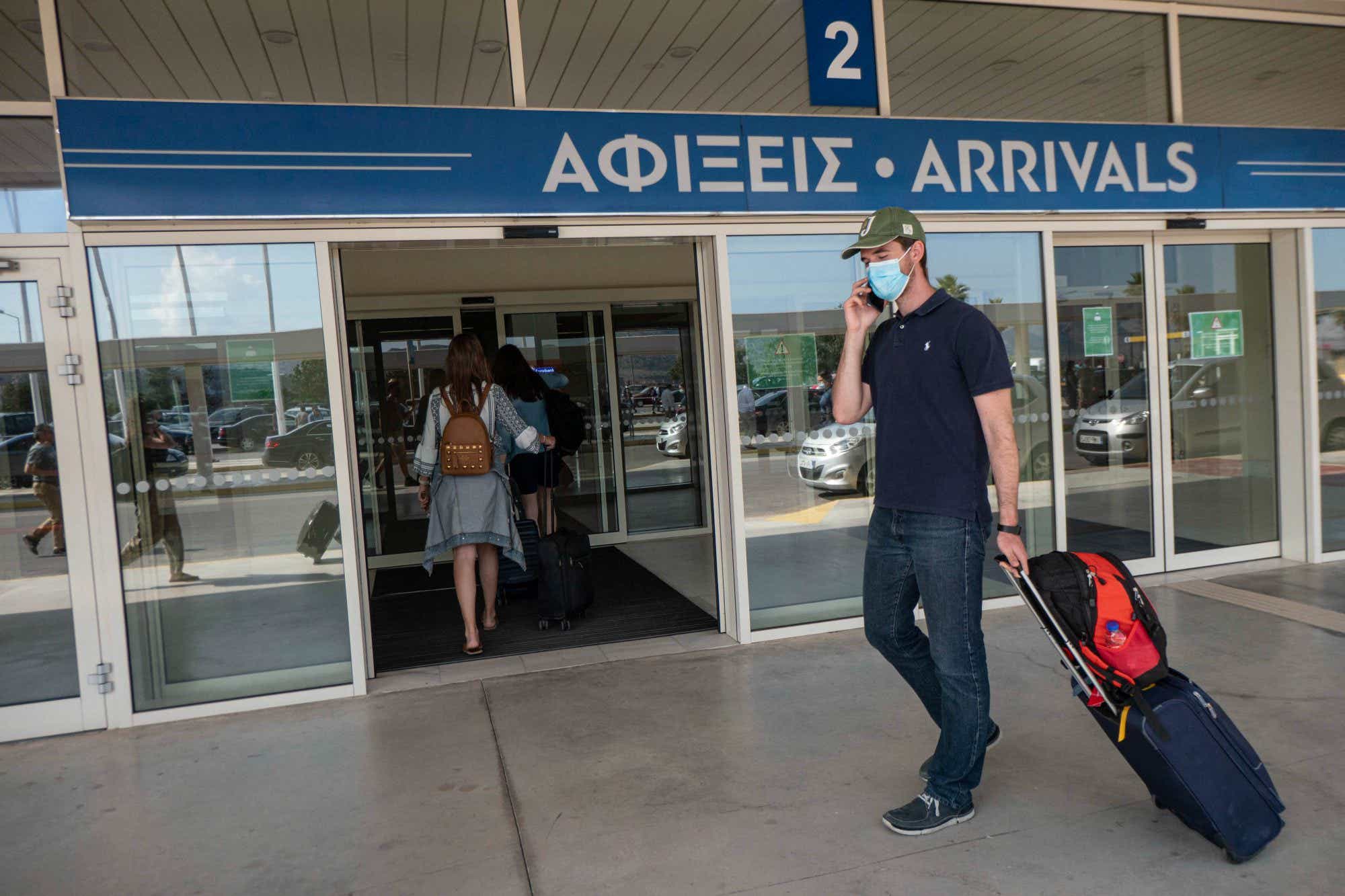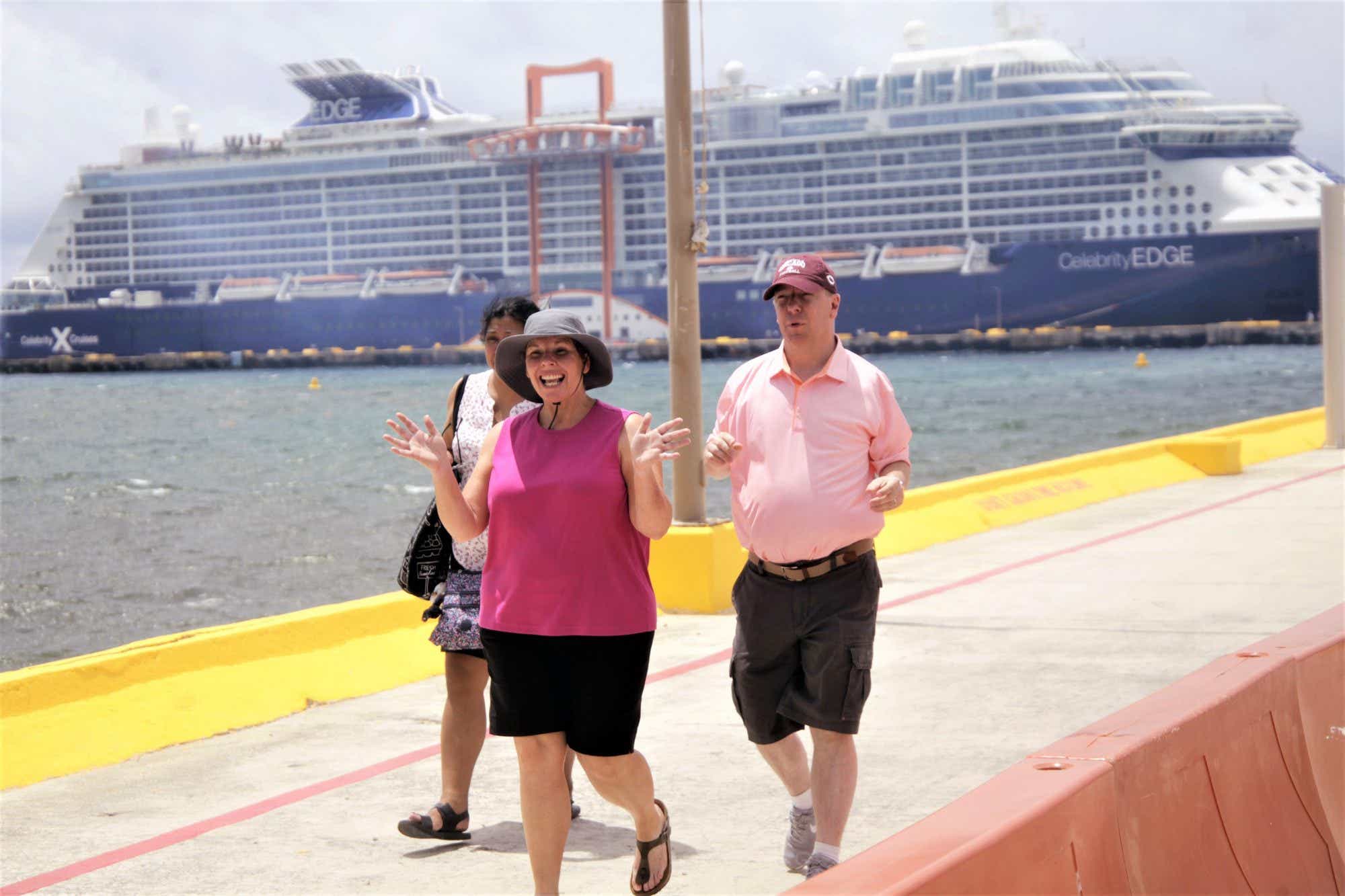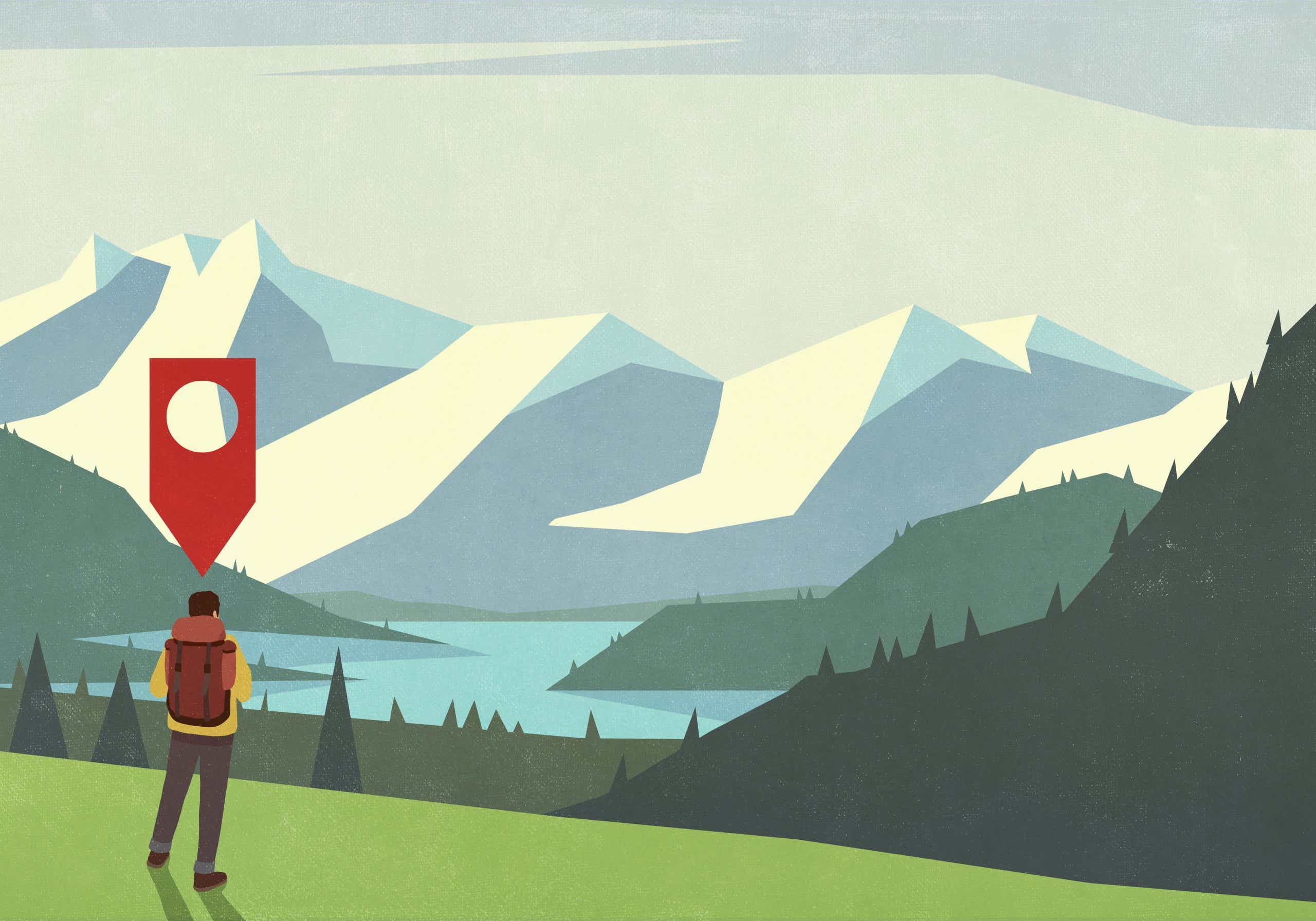Last weekend, just before Brad Paisley took the stage for an Independence Day celebration in downtown Nashville, a giant screen showed images of the same area, desolate except for the neon signs of the empty honky-tonks, with the date that footage was taken: July 4, 2020. Then it cut to a live shot of the packed crowd that had assembled one year later, which went wild as Paisley launched into his rollicking set.
“There were a lot of happy people — a lot of tears, to be honest,” said Deana Ivey, who was on the scene that night. “People were just so thrilled to be out at a live event and feel safe.”
Ivey, the executive vice president and chief marketing officer for the Nashville Convention & Visitors Corp, was one of the 350,000 people who gathered in Tennessee’s capital for the biggest fireworks show in the U.S. — “we bought more shells than New York, we made sure of it,” she said — a number that was unthinkable mere months ago.
It’s happening across the country. The Friday before Paisley’s performance, the TSA saw nearly 2.2 million passengers come through its checkpoints, surpassing the same date in 2019. As more Americans get vaccinated and Covid restrictions ease, travel is back.
In Charleston, S.C., “2019 was a record year for us in terms of volume and activity, and [2021] is on pace or slightly better than 2019,” said Doug Warner, vice president of media and innovation development for Explore Charleston. “We’re looking at the best May, best June months that we’ve ever had. And we have more direct flights, more airlines, and more seats at our airport today than we have ever had.”
International travel is, for now, still slightly more complicated, but eager travelers are nonetheless flocking to their dream destinations. Just ask Ashley Les, an advisor with Protravel International, who’s booked more than 100 honeymoons since January.
“Everybody wants to go to Greece right now. Everyone wants to go to Italy,” she said. “French Polynesia — October has been sold out since May. So you can’t even get into French Polynesia for most of the month of October.”

Safety precautions haven't taken a holiday.
Of course, the pandemic isn’t over, and as concern grows about the proliferation of the Delta variant, safety is key. For many, a Covid-19 vaccine is the essential first step to satisfying their wanderlust.
“When vaccinations were first rolling out, travelers were calling their travel advisor from the 15-minute waiting room or parking lot,” said Erika Richter, senior communications director for the American Society of Travel Advisors. “Like, ‘I'm vaccinated. Where can I go right now?’”
But even the vaccinated must pay careful attention to various destinations’ health guidelines. Les is based in Belize, where masks are “very much mandated,” which she said necessitates a clear understanding from clients before booking.
“For people who are coming from Texas and Florida, who haven’t had to wear masks in a while, I’m cautiously and nicely saying, ‘I want you to be aware of what the protocols are,’ so that they’re not uncomfortable coming to a destination that they’re not prepared for,” she said.
Carla Thorson, another advisor with Protravel, has firsthand experience with the way changing regulations can throw your trip for a loop. She had a client headed to Croatia when she realized his plan to go through Amsterdam would no longer work due to fresh restrictions. She rerouted him through Paris, all before he even had any idea something could have gone wrong — one of the perks of booking through an expert.
Domestic travelers generally have more freedom about their own precautions, but there’s plenty of reminders to keep safe. In Nashville, a haven for lovers of live music, more than 700 businesses have signed on to the Good to Go initiative, which bestows a sign with a green music note upon shops and venues that commit to following CDC health guidelines. “If you look for that, you know that place is taking care of you,” Ivey said.

Another industry taking safety seriously is the cruise business, which is seeing an explosion of bookings, according to Harr Travel CEO Danny Genung. Royal Caribbean cruises sailing from Florida are sold out through September, and there’s even a waitlist for luxury expeditions that cost as much as $150,000 per person. But Genung says getting on a ship full of strangers is safer than you might think, thanks to strict protocols.
“Some would look at it as an enclosed environment, but some would look at it as a controlled environment,” he said, citing various cruise lines’ policies of requiring vaccines, requiring regular Covid tests, or a combination. “I'm on a cruise right now where 99 percent of the people on board are vaccinated. There's no environment like that at home. There simply isn’t.”
As visitors pour in, hospitality looks a bit different than before.
Welcoming visitors again is “the best feeling in the world,” said Gail Morse, the director of programs and volunteers at New York City’s Big Apple Greeter, which connects locals with tourists looking for a friendly companion to give them a personal welcome. When the group mobilized again in May after a 14-month standstill, “the greeters couldn’t wait to get back to meeting visitors. They were chomping at the bit.”
But the makeup of those visitors looks slightly different these days, Morse said. Before Covid, about 90 percent of them were international travelers, which gave greeters “a sense of belonging to the entire world” — and a chance to use their foreign language skills. Now, with restrictions still in place on entering the U.S., most greeters are meeting up with folks from the States or South America.
Another difference is how long they’re staying. “What many greeters have told me is there are visitors who are coming to stay in New York for a month or two months because they can work remotely,” Morse said. “They say, ‘I always wanted to live in New York for a while. This is a great time to do it.’”
Now that many workers can do their jobs from anywhere, Thorson has been seeing more interest in extended villa rentals through sites like Airbnb or VRBO, and clients who prefer the luxury of a hotel are more likely to get a lower price on an extended stay. "You can negotiate a better room rate if you're staying for a long term," she said.
This sudden demand is a boon for tourism workers who saw their livelihoods essentially evaporate last year, but the hospitality industry needs time to staff up again. Warner said rebuilding the workforce is the biggest challenge now in Charleston, where many displaced workers left the area or left the industry entirely. In Nashville, “we have general managers of hotels that are cleaning rooms because they don't have enough housekeepers,” Ivey said.
The experts we spoke to say travelers have been patient and understanding of service that might temporarily be a little different than they’re used to, and they’ve also been more likely to work with a travel agent, whose expertise simplifies navigating unexpected hurdles. And after a crushing year, the spike in vacations is bringing a whole new generation of travel advisors to the business — even if they invent their own labels. “I have heard everything from ‘trip whisperer’ to ‘travel architect,’” Richter said. “The businesses that I’m seeing start, oh my gosh, this is exciting.”
Genung added that he and his colleagues who plan vacations for a living are equally relieved for the adjacent businesses who are also reaping the benefits: “The Uber drivers, the taxi drivers, the people on the supply chain, the farmers, everybody who has a piece of that is now back to work,” he said. “Yes, a lot of people are back to play, but getting back to work, I mean, it’s been elation all the way around.”












